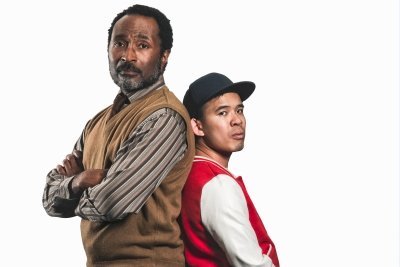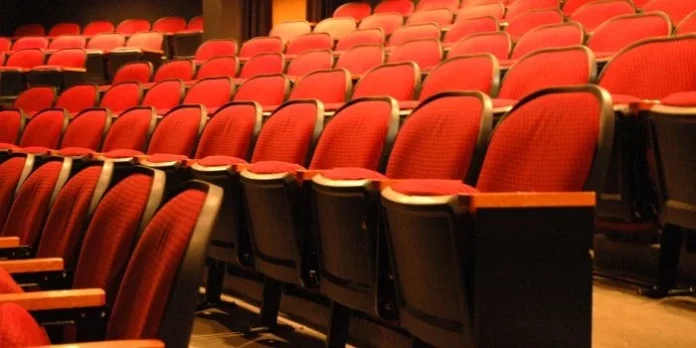Vancouver’s Ensemble Theatre Company is once again getting serious about summer, as the company returns to the Jericho Arts Centre for its fifth annual repertory festival.
“It is an exciting milestone to be presenting our fifth festival,” says artistic director Tariq Leslie. “This year’s productions epitomize our desire, as a collective of theatre artists, to present thought-provoking and challenging fare with a fresh and often funny take on prevalent current affairs.”
Not everything is deadly serious though as Ensemble Theatre includes Sarah Ruhl’s In the Next Room, Or The Vibrator Play. A finalist for the Pulitzer Prize in 2010, Ruhl’s comedy of manners is set in the 1880s just after the advent of electricity, during a time when doctors used the vibrator as a clinical device to bring women to orgasm as treatment for “hysteria”.
The festival’s second offering is David Pownall’s Master Class. In this imagined encounter, Russian composers Dmitri Shostakovich and Sergei Prokofiev are summoned to the Kremlin by dictator Josef Stalin and his cultural minister. Tempers flare as the political discussion on how artists can best serve the State becomes more personal.
The third show is Simon Bent’s stage adaptation of John Irving’s 1989 novel, A Prayer for Owen Meany.
Set against the backdrop of societal upheaval in America, A Prayer for Owen Meany is an often-amusing story of the bond between childhood friends Owen Meany and John Wheelwright. Growing up in a small New Hampshire town during the 1950s and 1960, the two become intrinsically linked by a tragic accident.
“I read the novel many years ago and it is one of those stories that stays with you and really gripped me at the time,” says director Ian Farthing. “There is a lot of contemporary resonance even though it is set a little in the past. What I think is attractive about Owen Meany is his certainty as to why he is here on earth. Living in a time of uncertainty, that level of conviction can be very attractive.”
Playing the title character, Vancouver actor Chris Lam was not familiar with Irving’s novel before auditioning.
“When I read the play the first time Owen struck me as a very Huck Finn-ish kind of character,” says Lam. “It was one of the most compelling urban character I’ve ever read, endowed with so many interesting qualities. This modern, Christ-like figure was not something I had expected from someone like Owen Meany, who is small and has a weird voice and yet he manages to have the pulse of the zeitgeist of our time.”
At over 600 pages, Irving’s novel is epic. While Irving doubted his book could ever be translated to film, according to Farthing the very nature of theatre makes Bent’s stage adaptation an entirely different beast.

“On stage there is already a suspension of belief required by the audience. In film, it is all very realistic,” explains Farthing. “On stage the audience is part of the creative process. It is about faith, which this play is about, demanding the audience has some faith in the play.”
Lam says fans of the novel will notice Bent’s edits, but they all serve a purpose.
“There is not a moment that is arbitrary,” says Lam. “On stage we jump through a non-linear order, with people coming in out of time and space. There are lots of theatrical moments that are very emotional and hyper-realistic, and you can do that all on stage.”
“Bent does a good job of distilling the essence of Owen’s journey,” adds Farthing. “He has crystallized what is most important.”
As with many great novels, fans will come with preconceived notions of story and characters.
While Bent uses an audience’s willingness to suspend belief to his advantage, great chunks of the story still takes place in mid-century New Hampshire.
In this production, any images readers bring with them from the novel are being challenged with its diverse cast.
“With the theatre ecology right now around diversity in casting I consider myself an ally on that front and wanted to ensure I was open as possible to push that agenda forward,” says Farthing. “Not at the expense of the story, of course, but as it turns out we did end up with a wildly diverse cast.”
Central to this production’s diversity is Lam in the title role.
“There is something built into these characters who are outsiders that gives it an interesting focus for us,” says Lam. “I’m not Irish Catholic, very far from that, but what we’re trying to tell is a universal story. The challenge wasn’t being comfortable in playing a part ethnically, the challenge was to find the essence of Owen.”
The challenge wasn’t being comfortable in playing a part ethnically, the challenge was to find the essence of Owen. – Chris Lam
Part of Lam’s discovery of his character comes from the development of Meany’s high-pitched shouting voice. In the novel, Irving even goes as far as capitalizing all Meany’s dialogue.
“As a director you don’t want an actor shouting through the show,” says Farthing. “You want to show the difference, but you also want to ensure the story is clear and the audience can listen to it for a sustained period.”
Lam has been working on his character’s distinctive voice, a challenge for any actor given it must be maintained for the duration of the play.
“We have a vocal coach who has been coaching me and facilitating ideas on how to sustain the voice so I can do it every other night for two and a half hours,” says Lam. “She has helped me to develop the voice while keeping clarity of the story in mind.”
A Prayer for Owen Meany plays in repertory with In the Next Room and Master Class at the Jericho Arts Centre (1675 Discovery St, Vancouver) from July 13 to August 18. Visit https://ensembletheatrecompany.ca for tickets and information.

